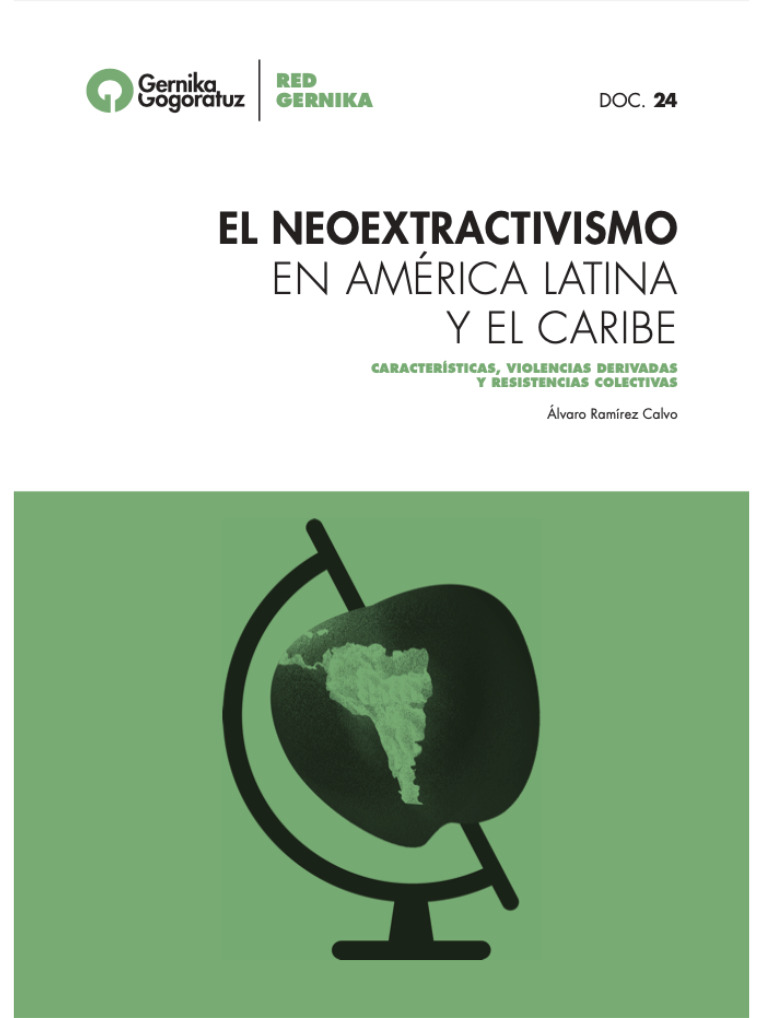Characteristics, derived violence and collective resistance.

“Neo-extractivism in Latin America and the Caribbean”. Álvaro Ramírez Calvo.
“Neo-extractivism in Latin America and the Caribbean”. Álvaro Ramírez Calvo.
This document by Álvaro Ramírez, a collaborator of Gernika Gogoratuz, deepens our knowledge of the operating patterns of ‘extractivism’, which serves to gain new keys and continue to articulate resistance and alternatives in the different communities in Colombia, Mozambique and the Basque Country in which Gernika Gogoratuz has been working. This research-action work leads to an in-depth study of the keys to ‘extractivist capitalism’ as a model of production, the capital-life conflicts it generates and the violence it provokes.
INDEX
Foreword.
Developmentalist extractivism’ and life alternatives to the conflicts of capital. Jokin Alberdi Bidaguren.
- Introduction. Extractivism in the current capitalist phase.
- Neo-extractivism in Latin America.
- State and market: legal and regulatory dynamics in neo-extractivism.
- Impacts on the territory: environmental, economic and cultural degradation.
- Institutionalised violence: criminalisation, displacement and repression.
- Collective action and protest by affected communities
- Conclusions
Bibliography
Álvaro Ramírez Calvo holds a PhD in Political Science and Administration from the University of the Basque Country (UPV/EHU) (2017), a Master in Conflict Resolution and Governance from the University of Amsterdam (2015) and a Master in Communication, Social Change and Development from the Complutense University of Madrid (2010). He holds a degree in Audiovisual Communication from the University of Burgos (2009). His research interests are the culture of peace, political participation in movements and parties, and the influence of the media in political conflicts. He has worked as a cultural and political journalist, with special emphasis on content related to social change.
The publication of this document has been made possible thanks to funding from the Department of Equality, Justice and Social Policies of the Basque Government, the Gernika-Lumo Town Council, the Casa de Cultura de Gernika-Lumo Public Foundation and the Gernika Gogoratuz Peace Research Association.
Gernika Network Collection.
DoC. 24
Gernika Network Collection Director:
María Oianguren Idigoras.
Editorial Coordination:
Mercedes Esteban.
Cover design and illustration:
goikipedia.
Typesetting:
eMeriel.
© Álvaro ramírez calvo, 2023
©Gernika Gogoratuz Peace Research Association, 2023 Artekalea, 1-1.° • 48300 Gernika-Lumo (Bizkaia)
Legal deposit: BI-641-97
ISSN: 1136-5811
May 2024
